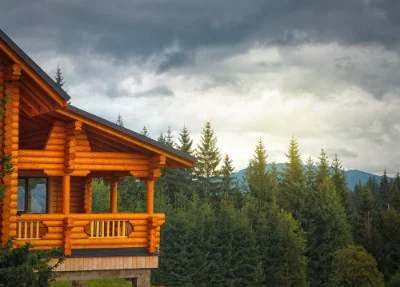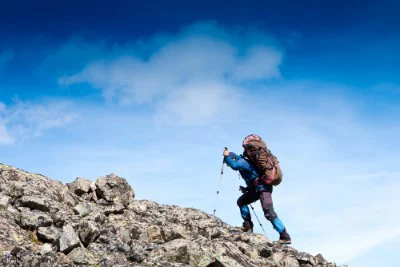
Everybody who has ever had the opportunity to live in or near the mountains can attest to the benefits of mountain life. There is no question that living in the mountains is unlike living anywhere else. For some people, they can’t imagine living anywhere else, and when they travel away from home, they miss the beautiful scenery, clean air, and tranquility of their mountain home. For others, the thought of being so isolated and disconnected can be enough to dissuade them from ever living in the mountains.
Regardless of your views on living in the mountains, there is no question that it is an experience unlike any other. What’s more, several studies have shown that living in the mountains can improve a person’s overall health and wellness in a variety of ways. From reducing the risk of heart disease to lowering the chances of suffering from depression, there are a surprising number of ways that living in the mountains positively impacts the lives of people who have decided to live in a mountain home. Here are some of the most important (and perhaps surprising) benefits of living in the mountains.
Physical Benefits

Weight loss. Studies have shown a link between altitude and weight loss. In 2013, there was a study performed across California and Colorado suggesting that living at sea level is associated with a higher risk of obesity. In some areas, the risk was four to five times as high when compared to people living in the highest areas in Colorado. It should come as no surprise that mountain states with high elevations such as Colorado and Utah have some of the lowest obesity rates in the United States.
Lower risk of heart disease. Research has discovered a correlation between living in the mountains and the risk of suffering from heart disease. In the study, data was collected from a variety of sources to determine that people who live in areas of high elevation die from heart disease less frequently than people at lower elevations. Scientists are still researching why that is the case, with the leading theory being that prolonged exposure to lower amounts of oxygen cause the heart to behave differently, perhaps even creating new blood vessels for blood to flow into the heart.
Promotes physical activity. The steep inclination of mountains naturally promotes more physical activity. In addition, mountain sports are well-known for being enjoyable enough to distract the participant from how strenuous the activities are. Sports like hiking, mountain biking, skiing, and rock climbing all burn anywhere from 400 to 800 calories an hour, and the best part is, all of them are very enjoyable activities. There are enough things to focus on, from the beautiful surrounding scenery to your correct climbing form, to keep you busy while you burn calories.
Fresh air. Breathing fresh, clean air has a range of significant health benefits, including:
- Improving metabolism and the health of your digestive system
- Stabilizing your blood pressure and heart rate
- Increasing levels of serotonin, which is correlated with increased levels of happiness
- Cleaning your lungs and releasing toxins
- Increased energy levels
- Improved mental performance and focus
- Easier breathing for people with asthma
Benefits of surrounding nature. Being surrounded by nature doesn’t only improve the quality of your view. It also has been linked to promoting physical health and wellness. The smells of nature, such as pine and lavender, have been shown to decrease stress, lower the risk of depression, and help with sleep.
Longer life. Some of the cities with the highest elevations also have some of the highest life expectancies in the United States. Of the ten counties in the United States with the highest life expectancy, an astounding seven of them are in Colorado.
Mental Benefits
Unplug from electronics. There are a lot of mental health benefits that come from abstaining from using technology—especially social media. Living in the mountains makes it much easier to disconnect from the internet and live in the moment. Doing this has been shown to reduce stress levels, help with anxiety, and even lower the risk of depression.
Reduced stress. As mentioned above, being surrounded by nature helps to reduce stress. There are other aspects of mountain life that help to reduce stress as well, including living in a more quiet area with not a lot going on and helping you live a more well-balanced life. Even factors such as lower traffic levels in mountain areas contribute to a lower amount of stress in their residents.
Mindfulness and meditation. The serenity of mountain living offers a unique opportunity to be more mindful and meditate more often. Several studies have shown the benefits of meditation and mindfulness, including reducing stress, controlling anxiety, enhancing self-awareness, increasing levels of happiness, improving attention span, reducing the risk of age-related memory loss, and more.
Increased levels of overall happiness. As mentioned above, there is a correlation between living in the mountains and overall happiness levels. The correlation is caused and influenced by a variety of factors, including the health and other mental health benefits of living in the mountains. For example, there is a correlation between the level of physical activities a person regularly participates in and their level of overall happiness. Because living in the mountains makes it easier to regularly engage in physical activities, the overall happiness levels increase.
Social Benefits
While many people are afraid of the solitude that they believe accompanies mountain life, many people who have experience living in the mountains will claim that their fears are not justifiable. In fact, most people who live in the mountains have healthy social lives and will attest that living in the mountains allows for a more healthy social life as opposed to a less healthy one. This is due to a few factors, including a person’s ability to control how much social interaction they have and the opportunity to connect with people on a deeper level, resulting in stronger and longer-lasting relationships with friends and family.
